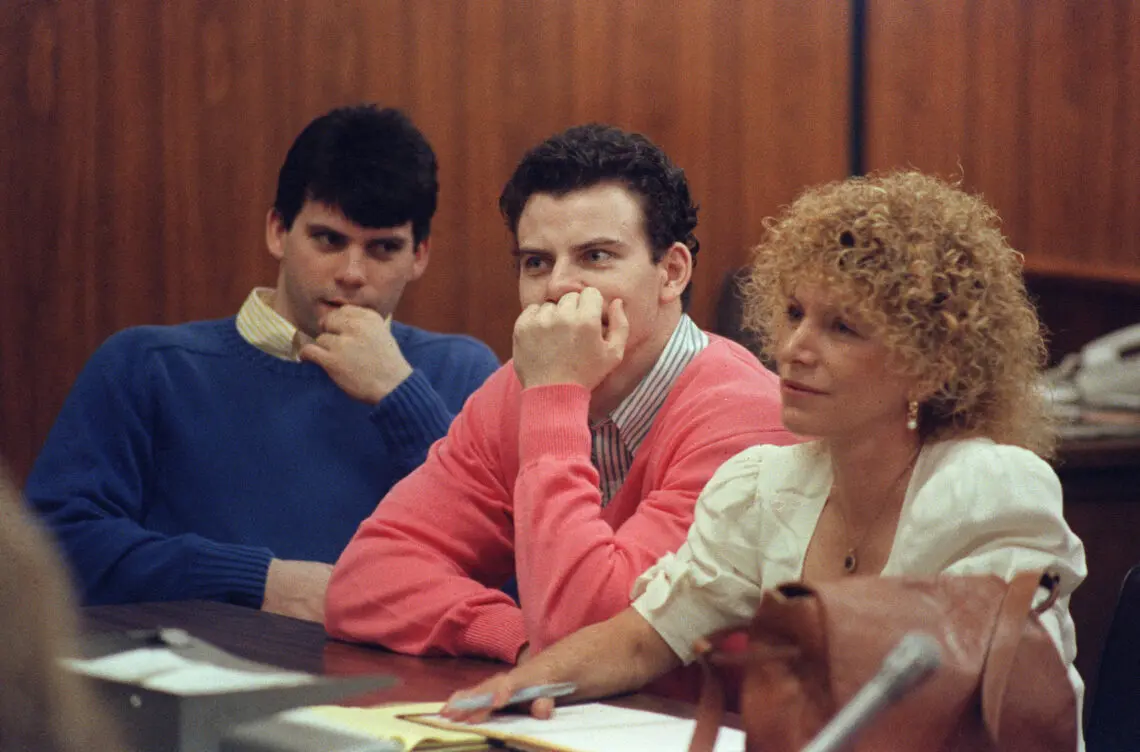LA DA proposes reduced sentences for Menendez brothers
A second look at the Menendez case
In an unexpected turn of events, Los Angeles District Attorney George Gascón has announced plans to seek reduced sentences for Lyle and Erik Menendez, the brothers who gained infamy for murdering their parents in 1989.
A move towards forgiveness?
Durin a recent press conference, Gascón revealed his office would request a judge to reduce their sentences from life without parole to 50 years to life. This significant change would render the brothers eligible for immediate parole. “After a meticulous review, we believe resentencing is justified under the law,” Gascón stated, emphasizing the brothers’ efforts at rehabilitation during their nearly 35 years in prison.
Judicial process and family perspectives
Despite Gascón’s stance, judicial approval remains essential. If the judge grants the request, the Menendez brothers must then face the state Board of Parole Hearings, where their suitability for release will be scrutinized. Family members also have a say; while numerous relatives support the brothers’ release, Kitty Menendez’s brother, Milton Andersen, strongly opposes it, believing justice was served with the original sentence.
Internal discord and public debate
Gascón acknowledged internal disagreements within his office about resentencing, with some prosecutors potentially arguing against it in court. The decision has sparked public debate, especially in light of revelations about alleged abuse the brothers endured from their father—a factor that Gascón considers critical for reassessment.
Gascón’s critics, including the Association of Deputy District Attorneys, accuse him of prioritizing high-profile cases for media attention, overshadowing the rights of crime victims. Yet, Gascón insists his focus is on fair and rehabilitative justice.
Broader implications and media influence
The case against the Menendez brothers has resurfaced in the public eye, largely due to recent media productions. The Netflix series Monsters: The Lyle and Erik Menendez Story and its companion documentary have revived discussions about their trial and subsequent life sentences.
At a recent press conference, members of the Menendez family and their attorneys presented new evidence, including testimony of abuse and letters depicting their traumatic childhood. Much of this evidence aims to shed new light on the brothers’ actions and their long-standing claims of being victims themselves.
Social implications and psychological insights
The Menendez case encapsulates complex social issues, particularly the psychological ramifications of childhood abuse. Modern understanding recognizes the deep scars such trauma can leave, often leading to extreme actions later in life. If the brothers’ resentencing is approved, it could set a precedent for how the legal system treats similar cases in the future, potentially granting more weight to psychological evaluations and personal histories.
High-profile advocacy and public sentiment
Prominent figures, like Kim Kardashian, have voiced support for the Menendez brothers, advocating for their release. This celebrity backing highlights a growing trend where influential personalities leverage their platforms to spotlight perceived injustices, stirring public sentiment and potentially influencing judicial outcomes.
What’s next for the Menendez brothers?
Whether or not the Menendez brothers will walk free soon depends on several factors, including court decisions and upcoming parole hearings. The judge’s ruling will mark a pivotal moment, not only in their lives but in the broader conversation about crime, punishment, and the potential for redemption.
The intricate details of this case underscore the importance of balancing justice with compassion, offering a profound look at how society deals with those who commit grave crimes under extraordinary circumstances.
While comments are closed, share this story on social media or follow us for more updates. This evolving narrative promises to keep the public eye fixed on the intersection of law, media, and personal redemption.

 Italian
Italian







